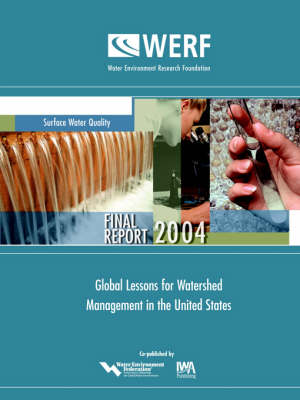WERF Research Report
1 total work
Global Lessons for Watershed Management in the United States
by J Goldstein and Annette Huber-Lee
Published 30 September 2004
Water resource management in the United States is evolving in the face of continuing challenges to protect water quality, provide adequate quantities of water for competing uses, and protect habitat and other natural resources. In many jurisdictions and agencies this evolution is increasingly leading toward adoption of watershed management. This approach is characterized by planning and decision making on a watershed scale, integration of a variety of competing water resource priorities and goals, cooperation of multiple stakeholders and governmental agencies, and increased levels of public participation. This report identifies the most promising watershed planning and management approaches from around the world; evaluates how they operate, their benefits and limitations; and assesses the degree to which these approaches could be successfully adapted to the U.S. context. Drawing on this international experience, the report is intended to inform policy makers and practitioners and to promote the implementation of integrated watershed management approaches that are most likely to succeed. This report: Provides a decision-making framework of watershed management efforts at all scales in the United States. Evaluates past U.S. watershed management experience and identifies key characteristics for success as well as major challenges and opportunities for improving the watershed approach. Summarizes and evaluates international case studies where innovative watershed management techniques have been used. Identifies ten key lessons for sustainable water management, including the role of water/wastewater utilities based on the experience of the international case study watersheds.
